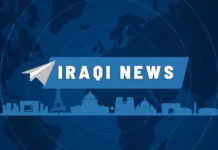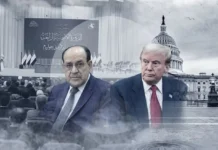Good Morning ,
Why Governments Are Falling in 2025: Alarm Bells for Global Order
As states unravel, the ripples are shaking the stability of the global system itself.
Recent Collapses & Political Crises
● France’s abrupt government collapse — Prime Minister Sébastien Lecornu resigned just hours after naming his cabinet, unable to form a coalition or instill confidence.
▪ Markets reacted sharply: the CAC 40 fell ~2%, French government bonds yields spiked, and investor confidence wavered.
● Netherlands’ recent government fall — Earlier in 2025, the Dutch coalition collapsed when Geert Wilders pulled support over immigration disagreements.
▪ The Dutch government became caretaker, delaying reforms and weakening institutional capacity.
These are not isolated incidents — they signify growing fragility in established democracies under pressure.
Underlying Fault Lines
● Fiscal strain & debt overload — In France’s case, public debt exceeds 114% of GDP, magnifying backlash over austerity and structural reforms.
● Political fragmentation — Weak majority coalitions, antagonistic parties, and ideological chasms prevent durable governance.
● Social backlash — Massive protests, strikes, and the “Bloquons Tout” movement in France reflect public rage over inequality and austerity.
● Loss of trust in central authority — When people believe institutions no longer represent them or deliver, legitimacy erodes.
Countries at Risk & Systemic Pressure
It’s not just Europe. Across many regions:
- Fragile democracies, states with high debt burdens or external dependency are especially vulnerable.
- Countries with large social welfare systems (e.g. in Latin America, parts of Asia) might reach breaking points under recession, inflation, or fiscal tightening.
- Authoritarian states that appear stable may hide internal fault lines (economic inequality, legitimacy, local governance breakdowns) that could surface under stress.
The broader pressure is toward rethinking sovereignty, fiscal control, and regional alignment.
Global Consequences & Financial Restructuring
● Risk premium & capital flight — Governments in instability see borrowing costs soar, capital seek safer jurisdictions, and credit spreads widen.
● Fragmentation of financial zones — States losing faith in global institutions may migrate toward regional or bloc-based systems (BRICS, ASEAN, etc.).
● Shifting reserve strategies — Countries might hedge by reducing exposure to foreign-denominated debt or assets, increasing gold or alternative reserve holdings.
● Erosion of dollar hegemony — Weakness in key Western states may accelerate de-dollarization: new payment rails, reserve currencies, and credit systems.
****************************************
Why This Matters / Key Takeaway
Governments are buckling not merely because of policy mistakes — they’re being strained by structural contradictions of the old world order.
As traditional powers falter, the spaces open for new financial architectures and regional blocs that bypass legacy systems.
When governments fall, it’s not chaos — it’s the unraveling of an order being replaced.
This is not just politics — it’s global finance restructuring before our eyes.
@ Newshounds News™ Exclusive
Sources & Further Reading
• Reuters
• The Guardian
• Reuters
• Al Jazeera
• Le Monde.fr
• Wikipedia
~~~~~~~~~
Elon Musk Warns of “Judicial Tyranny”: A Crisis of Democracy and Global Governance
When unelected judges can block elected leaders, the balance of power—and public trust—begins to fracture.
Judicial Power and Executive Paralysis in the U.S.
Elon Musk has ignited fierce debate after warning that America may be facing a “tyranny of the judiciary.”
“If ANY judge ANYWHERE can block EVERY Presidential order EVERYWHERE, we do NOT have democracy — we have TYRANNY of the JUDICIARY,” Musk posted.
The comment followed a wave of legal challenges to President Trump’s executive orders, with multiple federal judges issuing nationwide injunctions. Musk’s point: when a single unelected judge can halt an elected leader’s policy across all fifty states, the balance of power collapses.
Supporters of Musk’s view argue that judicial overreach undermines the will of the voters and stalls government function. Critics counter that these injunctions are a vital safeguard—especially when executive orders risk overstepping constitutional bounds.
Yet the deeper issue Musk highlights goes beyond politics. It speaks to the erosion of executive authority and the increasing rule of unelected arbiters in systems meant to be democratic.
***********************************
Global Echoes: Courts Challenging Leaders Abroad
This judicial tension is not uniquely American. Across the world, similar clashes are emerging:
- Europe: National governments from France to Italy have seen immigration, climate, and trade policies blocked or rewritten by EU courts and domestic tribunals.
- Israel: Massive protests erupted in 2024 over proposed judicial reforms, as citizens and leaders fought over whether courts should have power to strike down laws passed by elected officials.
- Asia and Latin America: In nations like Pakistan and Brazil, courts have intervened to freeze reforms, budgets, or even electoral outcomes—raising questions about democratic legitimacy and elite control.
In every case, unelected institutions are increasingly steering national destiny, often overriding voter mandates. What Musk calls “judicial tyranny” reflects a broader global trend—the weakening of executive governance in favor of institutional gatekeepers.
The Deeper Shift: Institutional Fragmentation and Distrust
The struggle between judiciary and executive branches signals a deeper fracture—the loss of public confidence in the very systems meant to protect democracy.
- Citizens feel disempowered when court rulings override their votes.
- Leaders feel paralyzed by legal walls built to prevent decisive governance.
- Economies and foreign policy stall as institutional conflicts multiply.
This isn’t merely about courtrooms and constitutions. It’s about the architecture of power shifting in real time—from elected bodies toward bureaucratic, legal, and financial arbiters who answer to few.
As trust collapses, nations turn inward or toward parallel systems—digital, financial, or geopolitical—to regain control. That shift is now evident across Western democracies, BRICS nations, and global markets.
Why This Matters
Elon Musk’s warning lands at a pivotal moment. Whether one agrees with his phrasing or not, his core message resonates worldwide: when authority becomes fragmented and unelected institutions dictate outcomes, democracy itself becomes performative.
These growing fractures don’t just shape politics—they reshape economies, currency systems, and global alignments.
This is not just politics — it’s global finance restructuring before our eyes.
@ Newshounds News™ Exclusive
Sources:
• Fox News: Musk blasts judges for blocking Trump’s executive orders
• Pacific Legal Foundation: Trump and Musk wrong to threaten judges with impeachment
• Reuters: Musk, Trump allies ratchet up rhetoric against judiciary
~~~~~~~~~
****************************************
Iran Approves Currency Redenomination: Removing Zeros as a Signal of Reset
In the midst of sanctions and economic collapse, Iran is cutting four zeros from the rial — a calculated step toward restoring confidence amid deep structural stress.
What the Reform Entails
● Parliament greenlighted removing four zeros, converting 10,000 old rials into 1 new unit (toman or renamed rial) over a multi-year transition.
● The central bank has up to two years to prepare, followed by a three-year dual-currency period where old and new notes coexist.
● Inflation has chipped away at the rial’s utility — it traded at roughly 1,150,000 rials per U.S. dollar, making ordinary transactions cumbersome.
While the move simplifies accounting and daily commerce, critics warn it is superficial unless anchored in real macroeconomic change.
Why Iran Is Pushing This Now
- Sanctions and economic isolation have pushed the rial into collapse; redenomination is partly an attempt at a psychological reset.
- The reform comes as Tehran seeks to reenter global finance and present a cleaner monetary posture ahead of potential diplomatic openings.
- In 2025, Iran also took steps toward joining global financial crime conventions to exit blacklist status.
Yet the central tension remains: relabeling numbers won’t stop inflation nor repair structural deficits.
Are Others Following Suit? Iraq & Beyond
- Iraq has floated the idea of removing zeros in the past to simplify transactions, though no official plan has advanced recently.
- The Iraqi Central Bank has also reduced the supply of dinars recently, a smaller action hinting at internal monetary prudence.
- Nigeria redesigned its naira in 2022 to curb counterfeit usage, though not a zero-cut.
- In Syria, reports suggest considerations to drop zeros from the pound, though nothing official has been confirmed.
None of these cases, however, are as drastic as Iran’s plan — and none (yet) carry the same geopolitical weight.
***************************************
How This Fits Into the Global Restructuring
- Redenomination is a powerful signal in a world where monetary legitimacy is fracturing — as governments seek to reclaim sovereignty over broken currencies.
- In China, India, and BRICS states, alternative reserve strategies (gold, digital currencies) are being built. Iran’s move fits into the broader vision of decentralizing fiat dominance.
- If the U.S. dollar’s dominance weakens, more states may see redenomination as a reset tool — but only if they control the underlying fiscal and monetary levers.
When a country changes its currency’s expression, it’s not just form over function — it’s a push against inherited systems.
Why This Matters / Key Takeaway
Iran’s approved zero-cut is more than cosmetic. It’s a bold statement of intent — that the old arithmetic, the old system, is no longer viable.
For the change to stick, Iran must tackle inflation, liquidity, sanctions, and structural reforms. Without that, the new currency may be just a veneer.
As Iran steps toward this reset, the ripple effect could reach nations struggling under heavy debt, weak fiat, or external pressure — giving them a playbook for monetary autonomy.
This is not just politics — it’s global finance restructuring before our eyes.
@ Newshounds News™ Exclusive
Sources:
• Reuters – Iranian parliament approves currency redenomination
• AlEstiklal – Removing Four Zeros: What It Means
• Reuters – Iran takes step toward financial watchdog compliance
• Iraq Business News – Iraq revaluation talks and surveys
• Iraq Business News – Reduced issuance of Iraqi dinars
• Wikipedia – Iranian rial history & redenomination proposals
~~~~~~~~~
Seeds of Wisdom Team RV Currency Facts Youtube and Rumble
Newshound’s News Telegram Room Link
Follow the Gold/Silver Rate COMEX
Follow Fast Facts
Seeds of Wisdom Team™ Website






